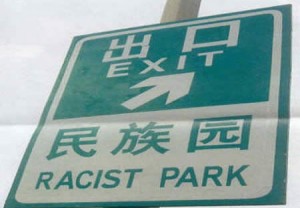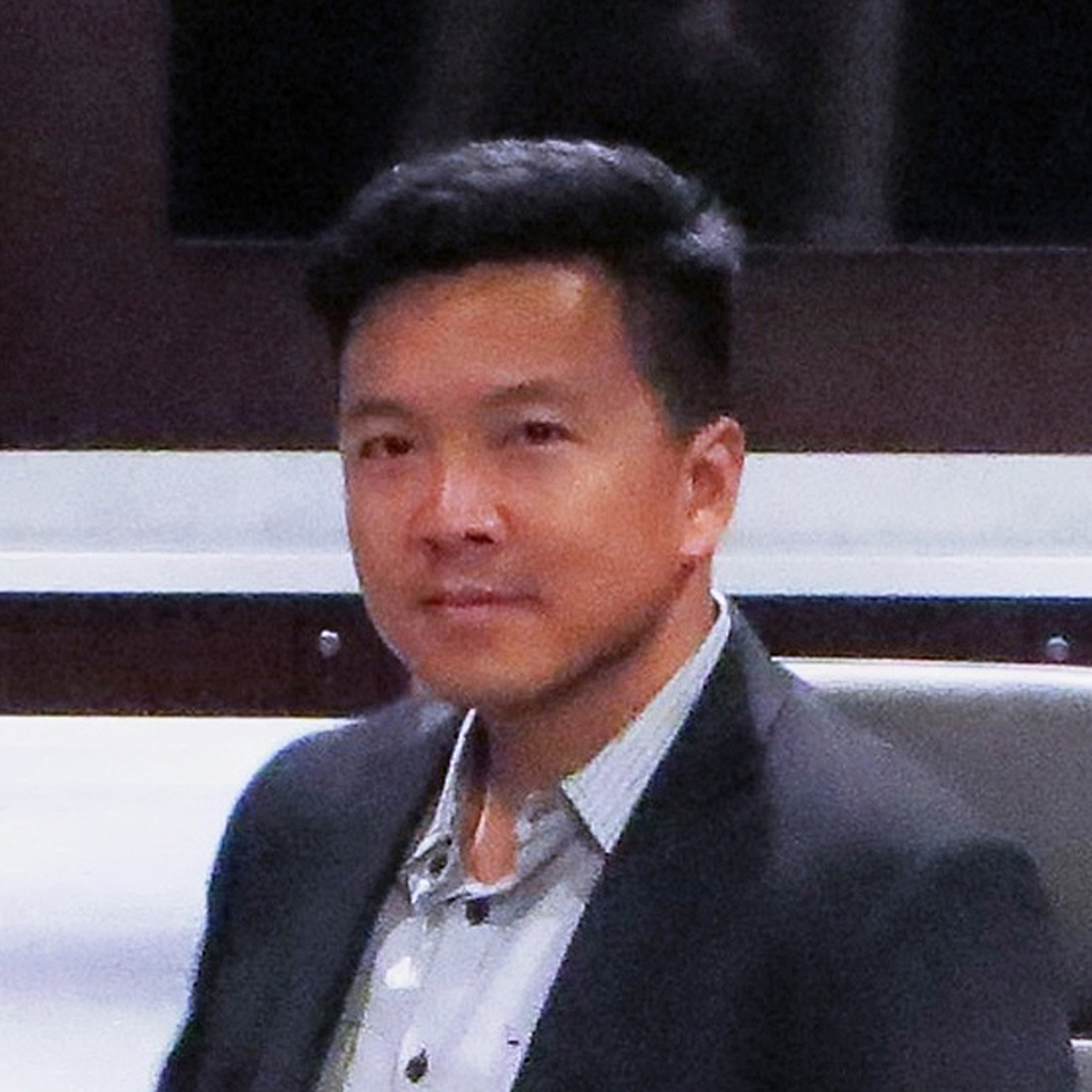Lost in Translation
Sometimes trying to translate word-for-word what you mean in one language doesn’t go well. Here’s a funny example of it from Chinese to English.

Meant to read: Ethnic Minority Park
Some years ago, while getting lunch in a deli in Nice (the French Riviera) I once got fish instead of chicken for lunch, despite the fact that I knew the difference between poisson and poulet. In this case, I actually pointed to the dish with the labeled signs. It wasn’t my fault, I promise! They mislabeled the dishes.
And I hate fish! :p
I have to wonder how I’ve sounded when in another country, trying to translate my words into their language. I probably sound just as silly, but so far I’ve been pretty fortunate based on the absence of giggles I’ve received in my meager attempt at French, Italian, or Chinese
Either that, or they’re a lot more polite than I would have given them credit for.
Do you have any funny translation (mistranslation) stories? I’d love to hear them. Please share in the comments section below.
 Joshua Graham is a New York Times and USA Today bestselling author, winner of the International Book Award and Forward National Literature Award. His thrillers include DARKROOM, LATENT IMAGE and BEYOND JUSTICE, and TERMINUS. Graham's works have been characterized as thought-provoking page-turners.
Joshua Graham is a New York Times and USA Today bestselling author, winner of the International Book Award and Forward National Literature Award. His thrillers include DARKROOM, LATENT IMAGE and BEYOND JUSTICE, and TERMINUS. Graham's works have been characterized as thought-provoking page-turners.
Legal Notice: All information on this website and blog are from Mr. Graham's personal experience and insight and should not be viewed in any way, directly or inferred, as qualified professional advice.
All creative writing on this website or Mr. Graham's books: This is a work of fiction. Names, characters, businesses, places, events, locales, and incidents are either the products of the author’s imagination or used in a fictitious manner. Any resemblance to actual persons, living or dead, or actual events is purely coincidental. (novels, short stories)
When I was still taking Shaolin Gunfu, I tried to say my name in mandarine to one of the monks and he choked in laughter, telling me that I said my name was Closing Door, or something like that.
I also remember when I was in mandarin class back in school, and a student got a tone wrong. Instead of saying, “may I ask?” he said, “may I kiss.” *grin*
And then there’s the classmate I had at Shaolin class. Her name in mandarin apparently means The Wheat Lady. Hahaha
Lost in translation even happens within two dialect’s in the Chinese language. I speak Mandarin and my husband and in laws speak Cantonese. One day my husband’s grandmother said her “toe tong”. When I heard it I ran to grab some Tylenol or Aspirin. My husband starts laughing.
In mandarin the word “toe” means head. “Tong” means hurts. So I thought she was experiencing a headache.
Well apparently in Cantonese the word “toe” means stomach.
And in the English language a toe is a toe. 🙂
Funny how even one word can mean different things within different dialects.
Sorry if I am spelling the word toe incorrectly. But that’s the word that sounds best to the way it is pronounced.
I was at the airport and a young Chinese student was changing planes in Chicago. He spoke no English, so I, with my limited Mandarin, attempted to help him. At one point I asked him to sit and “wait” while I got permission to go to his gate with him. The only problem is that I got my Haitian Creole confused with my Mandarin and said “tan” which means to talk or chat in Manadarin, whereas it means to wait in Creole. Poor fellow was perplexed that I was telling him to sit and “chat” when he could not understand English and then I walked away! Like who was he supposed to chat with?